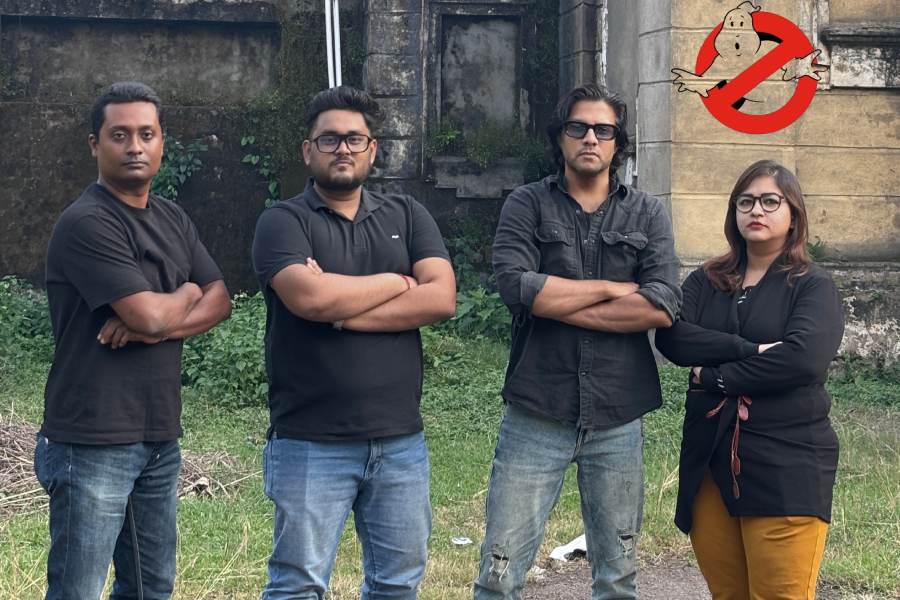 | Interview Pranab Sandilya |
As a college cracks down on mainly girls’ attire on campus, a principal claims that there are “administrative, educational and security issues” connected to their leggings and that Assamese youngsters should not be influenced by the attire of “hill children”, who, he says, are “different”.
Sumir Karmarkar talks to Guwahati College principal Pranab Sandilya, who is now said to be “Talibanising” his college.
 |
| Guwahati College |
The Telegraph: How are leggings related to security?
Pranab Sandilya: I do not want to comment about the leggings only but the dress code or uniform of a college is important and related to security, particularly during a college function when people from outside also join and mingle with us. In case of any trouble or disturbance, we can identify our students by their uniforms.
TT: Leggings, earrings, hair oil, no “flimsy” chunni, what else?
PS: We want to make sure that a student follows a formal college uniform code decided by the disciplinary committee. The student union of the college has supported the initiative. Maintaining uniform dress code is an internal institutional disciplinary matter.
TT: Earrings are related to academic discipline and security?
PS: I have seen that boys are wearing earrings only for style. So, I have personally checked and removed them. But I am allowing some students who wear earrings because of some rituals or customs.
TT: You say a girl’s upper garment has to be of “right size and shape”. Please explain. Did you also mention thin chunnis?
PS: A girl student should wear a formal salwar-kameez and boys should wear formal black pants and cream-coloured shirt. But we have seen that many girls are wearing skin-tight clothes, which are not allowed on campus. Some are wearing transparent clothes and one can see their bodies.
A short kurti is also not allowed and one should wear an Indian salwar-kameez.
TT: Asked about boys’ dress code on a TV channel, you asked, “How many shall we go after?” Why are you targeting only girls?
PS: I am equally strict regarding the boys. I will be equally strict if they do not follow the formal uniform dress code.
TT: Girls are saying you have asked them to use hair oil and tie their hair. Is that security-related?
PS: A student should maintain discipline and obey the norms of a college or any other educational institution.
TT: What are the options: Hindi movies where women reveal, porn stars acting in Jism 2, the Internet and porn. So what is the better strategy: to say respect each other and have personal freedom or say do not do this and that?
PS: We are asking the students only to obey the formal dress code of the college when they are on the college campus.
We cannot do so outside. Children here are imitating people from the hill areas and this creates problems sometimes. We should remember that our Assamese culture is different from that of the hill people. Our students should not get influenced by others.
TT: Students spend limited time in college, after which they go home. College is also the last step before they go out into the world. How do these rules help them prepare for life? Isn’t it better to teach them to respect the human body and others?
PS: Value education will definitely have some good impact on their character.
TT: A student of yours says on television: “We can see half the girl’s body when it rains. Hence they should not dress like that”. How can he talk like that about his classmates?
PS: Everyone has the right to express his or her opinions.
TT: Do you have a size and shape for boys’ trousers? There are fits: straight, low-rise, sagging jeans. Many of your boys wear low-rise jeans. Are you aware that this started with US felons?
PS: As I said earlier boys, too, have to follow the formal uniform dress code and we don’t allow boys to wear jeans or low-rise pants.
TT: You speak of decent salwar kameez for girls. Why no pyjama-kurta for the boys? And why are your teachers in shirts and trousers?
PS: Salwar-kameez was decided as a uniform dress code for girl students a long time back. We have also asked our teachers to wear formal clothes in college.
TT: We live in dangerous times: women are molested, raped. Boys from our society are committing such crimes. Under the circumstances, do you have a class that tells boys what the penalty for molestation and rape is, that eve teasing is a crime punishable by law?
PS: No we don’t take any classes on these issues. A student coming to a college is aware of the fact that these are criminal acts and are punishable under law of the land.
TT: What according to you is better for a girl? A pair of jeans and shoes or salwar-kameez and slippers if she has to get off a bus, run, or protect herself from attackers?
PS: We live in a society with a cultural background and social customs and we should abide by our ethos. That is the best way to live in peace.
TT: Since you claim you are worried about security, have you proposed, say, compulsory martial arts training for girls?
PS: No we have not proposed that but yes, that may help.
TT: You speak of security: does Guwahati College provide transport for its students?
PS: No we don’t.
TT: By saying it is security-related isn’t it also saying that a girl wearing leggings for instance is asking for trouble, or in other words, deserves it?
PS: Leggings on my college campus is not allowed in accordance with our uniform dress code.
TT: Does it not all boil down to Talibanisation, as some have pointed out?
PS: That is her (the young girl on TV) personal opinion and I have nothing to say.










